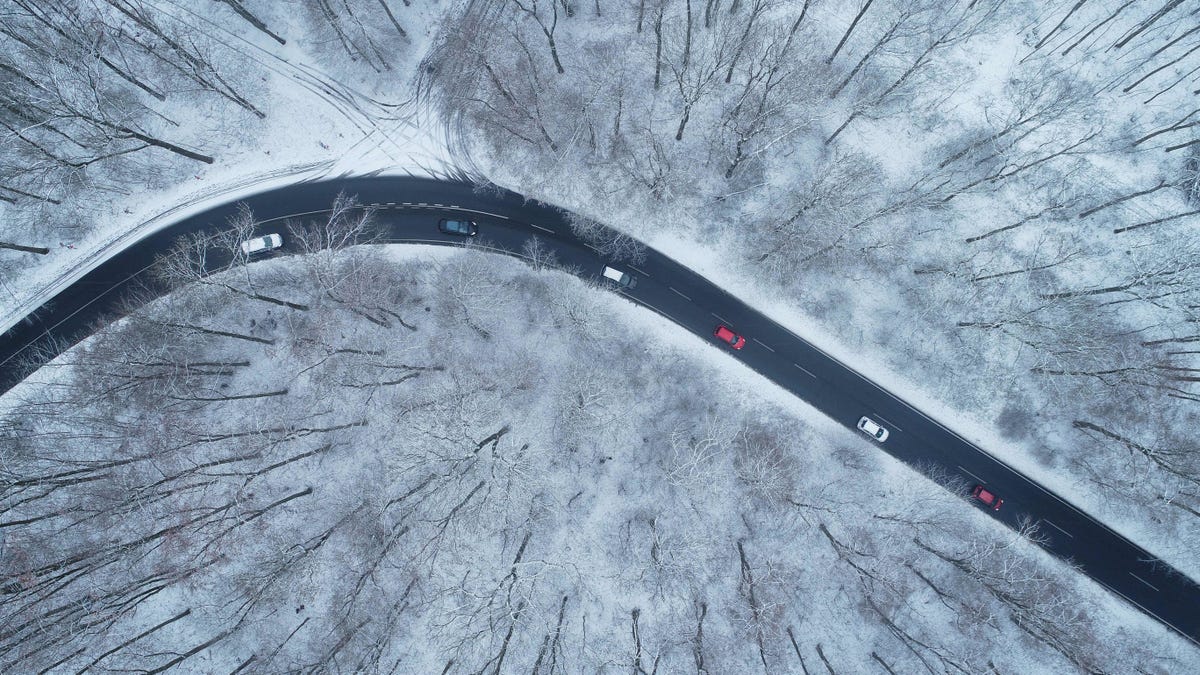After a week of trying out my trial subscription to Starlink on my new 2020 Outback, I decided I wasn't getting enough value out of it to justify the security and privacy sacrifices, and cancelled it. However, I plan to go further by physically disconnecting my telematics antennas. If you Google "disconnect Starlink antenna" you'll find a few threads about it on other forums, but not all of them terribly helpful and none of them applicable to the Gen6. So I thought I'd share the results of my research.
WHY
First of all, why am I bothering with this? Exactly what security and privacy am I protecting, and why isn't service cancellation sufficient?
According to the Starlink privacy policy they collect and retain:
None of this is unreasonable or gratuitous; it all seems reasonably connected to the advertised functionality of the product. It's good that they only collect location data in response to crashes or service requests, rather than constantly. It's nonetheless more than I care to share. Even if they're not getting location data all the time I'm driving they're still learning a lot about my driving patterns on the basis of time and mileage. And I don't necessarily want the system automatically calling for help if I get into a minor single car accident; I might prefer to take care of it quietly than to get police and insurance involved.
Cancelling service presumably prevents most of this data collection. But without some significant effort at sniffing bus traffic or reverse-engineering the firmware, I don't really know this for sure. It could be that they're still collecting it all and just no longer giving me access to it. In most of the US, they wouldn't be running afoul of any laws that way.
For sure, though, cancelling service does not prevent Starlink from phoning home. If I wanted to reactivate my service, I could do so without ever touching anything inside the car. The car therefore must necessarily still be connecting to the cell network at least long enough to check up on its subscription status. So at the very least, Subaru is still getting a request containing my VIN every time I turn on my car, and they can use my IP address to deduce my approximate location. AT&T is getting similar information from my IMSI. I'm of course also leaking this same information to cell providers by carrying a cell phone, but at least that's easy to turn off or leave behind.
That's enough for privacy — how about security? An attacker who takes control of my Starlink account could use it to do some pretty scary things, like immobilize my car in the middle of the highway. Such an attacker could be a rogue Subaru employee or could be anybody who finds a vulnerability in their website or in the unit itself. There have been many such vulnerabilities already discovered, and you should take it for granted that there are more that are not yet known. Cancelling my service doesn't protect from this, since the attacker could just re-enroll me.
HOW
Ok, hopefully I've established that disconnecting your telematics antennas is something worth doing. Now on to how. Unfortunately, it's a giant pain in the ass and if you want to try to do it yourself you're going to at least need the service manual in hand.
There are two separate antennas. The main one is in the sharkfin. But there is also a secondary antenna, referred to in the service manual as the "telematics sub antenna", located behind the instrument panel. I'm not sure if the second antenna is just there for redundancy (in case the main one gets destroyed in a crash) or if they're tuned to different bands. The manual refers to them both as LTE antennas but it would make sense if the sub antenna were actually UTMS (3G). Regardless, they both need to go.
The path from the main antenna to the data communication module (where the transceiver is) passes through three different connectors, and one of them is easy to get at. It plugs into an antenna amplifier located at the top of the lift gate, which you can get to just by popping off the trim panel with your fingers or a plastic pry tool. This is the one labeled "An63" in the service manual. If it weren't for also having to do the sub antenna, I'd do this one myself and post a howto video. Sadly, the sub antenna is much harder to get to and I don't dare attempt it on my own (dammit Jim, I'm a security researcher, not a mechanic). There's only one connector, "An65", and you have to pull out the whole instrument panel in order to reach it. Nope, not gonna do that to my new car.
However, I've explained to my dealer's service department what I want done, and they're willing to do it. My appointment is March 2, and I'll update this thread afterward and let you know about any problems I encounter or the lack thereof. I'm not expecting any. It's just an antenna after all, and sometimes an antenna isn't going to have any signal, so the car must be designed to cope with that.
UPDATE 2020-03-02: Success! See this reply for how the dealer went about it and what the outcome was.
WHY
First of all, why am I bothering with this? Exactly what security and privacy am I protecting, and why isn't service cancellation sufficient?
According to the Starlink privacy policy they collect and retain:
They'll share this information with "suppliers, roadside assistance providers, emergency service dispatchers and providers, anyone you designate as an emergency contact and our affiliates" and also with law enforcement if they receive a subpoena.
None of this is unreasonable or gratuitous; it all seems reasonably connected to the advertised functionality of the product. It's good that they only collect location data in response to crashes or service requests, rather than constantly. It's nonetheless more than I care to share. Even if they're not getting location data all the time I'm driving they're still learning a lot about my driving patterns on the basis of time and mileage. And I don't necessarily want the system automatically calling for help if I get into a minor single car accident; I might prefer to take care of it quietly than to get police and insurance involved.
Cancelling service presumably prevents most of this data collection. But without some significant effort at sniffing bus traffic or reverse-engineering the firmware, I don't really know this for sure. It could be that they're still collecting it all and just no longer giving me access to it. In most of the US, they wouldn't be running afoul of any laws that way.
For sure, though, cancelling service does not prevent Starlink from phoning home. If I wanted to reactivate my service, I could do so without ever touching anything inside the car. The car therefore must necessarily still be connecting to the cell network at least long enough to check up on its subscription status. So at the very least, Subaru is still getting a request containing my VIN every time I turn on my car, and they can use my IP address to deduce my approximate location. AT&T is getting similar information from my IMSI. I'm of course also leaking this same information to cell providers by carrying a cell phone, but at least that's easy to turn off or leave behind.
That's enough for privacy — how about security? An attacker who takes control of my Starlink account could use it to do some pretty scary things, like immobilize my car in the middle of the highway. Such an attacker could be a rogue Subaru employee or could be anybody who finds a vulnerability in their website or in the unit itself. There have been many such vulnerabilities already discovered, and you should take it for granted that there are more that are not yet known. Cancelling my service doesn't protect from this, since the attacker could just re-enroll me.
HOW
Ok, hopefully I've established that disconnecting your telematics antennas is something worth doing. Now on to how. Unfortunately, it's a giant pain in the ass and if you want to try to do it yourself you're going to at least need the service manual in hand.
There are two separate antennas. The main one is in the sharkfin. But there is also a secondary antenna, referred to in the service manual as the "telematics sub antenna", located behind the instrument panel. I'm not sure if the second antenna is just there for redundancy (in case the main one gets destroyed in a crash) or if they're tuned to different bands. The manual refers to them both as LTE antennas but it would make sense if the sub antenna were actually UTMS (3G). Regardless, they both need to go.
The path from the main antenna to the data communication module (where the transceiver is) passes through three different connectors, and one of them is easy to get at. It plugs into an antenna amplifier located at the top of the lift gate, which you can get to just by popping off the trim panel with your fingers or a plastic pry tool. This is the one labeled "An63" in the service manual. If it weren't for also having to do the sub antenna, I'd do this one myself and post a howto video. Sadly, the sub antenna is much harder to get to and I don't dare attempt it on my own (dammit Jim, I'm a security researcher, not a mechanic). There's only one connector, "An65", and you have to pull out the whole instrument panel in order to reach it. Nope, not gonna do that to my new car.
However, I've explained to my dealer's service department what I want done, and they're willing to do it. My appointment is March 2, and I'll update this thread afterward and let you know about any problems I encounter or the lack thereof. I'm not expecting any. It's just an antenna after all, and sometimes an antenna isn't going to have any signal, so the car must be designed to cope with that.
UPDATE 2020-03-02: Success! See this reply for how the dealer went about it and what the outcome was.







